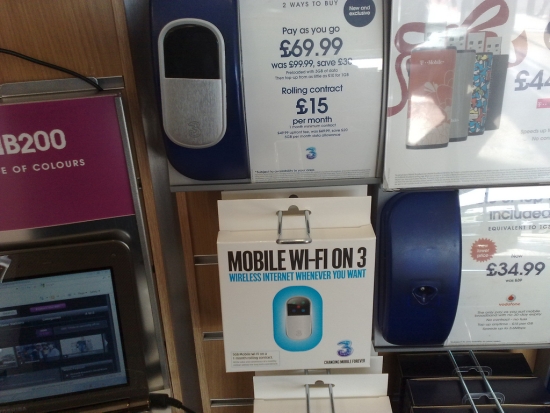Mergers between larger brands within the retail industry have become commonplace of late, with many firms concerned that the current consumer climate does not provide enough scope for large-scale profit rises when operating alone.

While homeware and furniture brands continue to perform admirably due to the housing boom, other areas within the retail industry such as fashion and electronics have somewhat fallen by the wayside – meaning mobile phone companies in particular stand to gain by merging with other firms, as showcased by the highly successful merger between Orange and T Mobile to create network giant EE.
This week, it has emerged that electronics retailer Dixons is in talks with third party mobile phone retailer Carphone Warehouse regarding a potential merger deal which would see the new brand gain significant market share in the electronics retail field. However, both parties have been keen to stress that these discussions are in the very early stages and as a result no details regarding potential agreements have yet been revealed.
A joint statement from the boards of both companies said; “The boards of Dixons and Carphone Warehouse note the recent speculation and confirm that the two companies are in preliminary discussions regarding a possible merger of Dixons and Carphone Warehouse.
“These discussions are at a very preliminary stage and there can be no certainty that a transaction will be forthcoming.
“No decision has been reached regarding the structuring of any such merger.”
A merger at this point may seem like an unusual move for both companies especially as Christmas sales in the brands’ respective stores exceeded expectations, with Dixons posting a 5 per cent rise in like for like sales in the three months to the 4th of January and Carphone Warehouse growing like for like sales by 3 per cent in the three months to December 28. Furthermore, Carphone Warehouse’s key rival, Phones 4U, is already an existing partner of Dixons and sells mobile phones through the group’s PC World and Currys stores.
However, scratching below the surface reveals a number of benefits for Dixons in particular. Since the demise of key rival Comet, sales have indeed increased but the chain remains underrepresented in the ever-growing smartphone market – something which this merger would tackle with great effect.
Furthermore, Dixons stores are vastly outnumbered by the property portfolio controlled by Carphone Warehouse. The latter has more than 2,000 stores across Europe, while Dixons has roughly 500 branded properties in the UK and Ireland.
Retail analyst Nick Bubb agrees that Dixons stands to make more from a merger than Carphone Warehouse does at this point.
He says; “In a world of connected devices, Dixons is underexposed to the key area of mobile/smartphone retailing, and it is known that they were looking at the area.
“It is a bold move for Dixons; it is slightly harder at this stage to see what’s in it for Carphone Warehouse.”
Previous Post
Dublin set to become Europe’s new High-Tech Capital